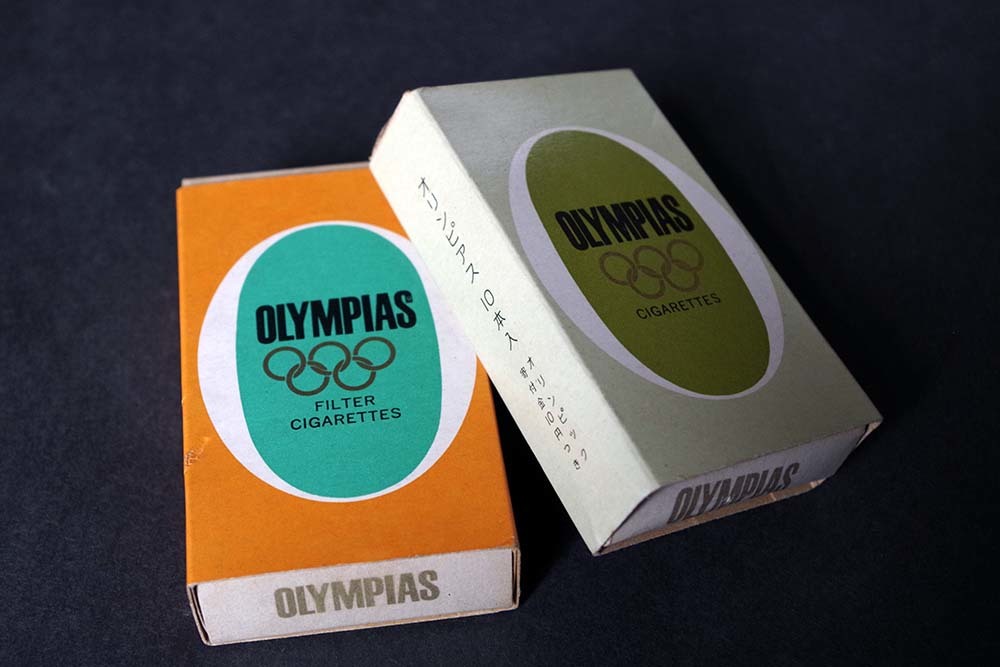Trivia 24 of 30
When did brands start advertising in the Olympics?
Athens 1896
Brands started advertising in the Olympics right from the get-go. Kodak advertised in the official souvenir program of the very first Olympics, in Athens, Greece, in 1896. The company continued to be a sponsor for many years to come (cbc.ca).
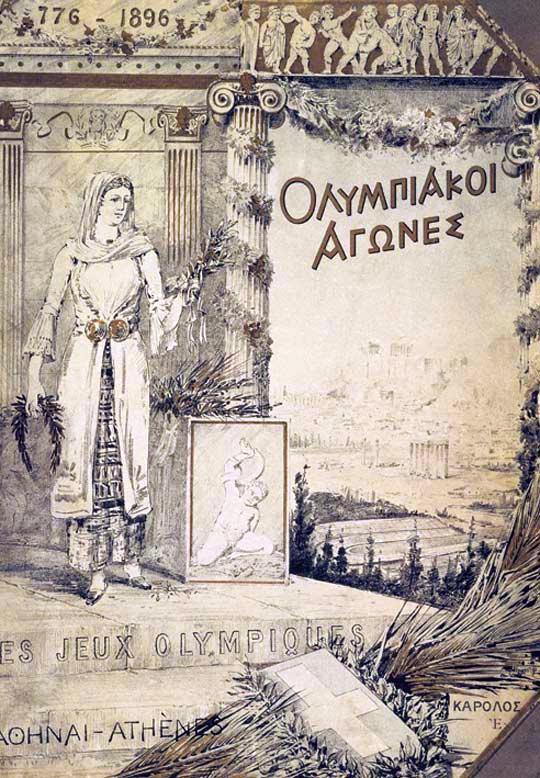
Cover of the official report of the 1896 Athens Summer Olympics. Photo: Wikipedia.org
Because the games were brand new and still relatively unknown, contestants were not selected by their countries. Instead, individuals spent their own money to attend and participate. Even tourists in the area joined in as contestants. Only men competed in this inaugural version of the Olympic games (cbc.ca).
Stockholm 1912
2,408 athletes—including 48 women—competed in the 1912 Games in Stockholm, Sweden (cbc.ca).
Ten different companies paid for the rights to advertise at these Olympics. Among them, the Granberg Industrial Art Company paid $3,600 for the right to use photographs of the competitions in their ads. In addition, another firm paid for the right to install weight scales that spectators could use for fun (cbc.ca).
Another marketing milestone emerged during the Stockholm games: companies were allowed to use Olympic symbols on commercial merchandise for the first time. This became a highly coveted opportunity in the years to come (cbc.ca).
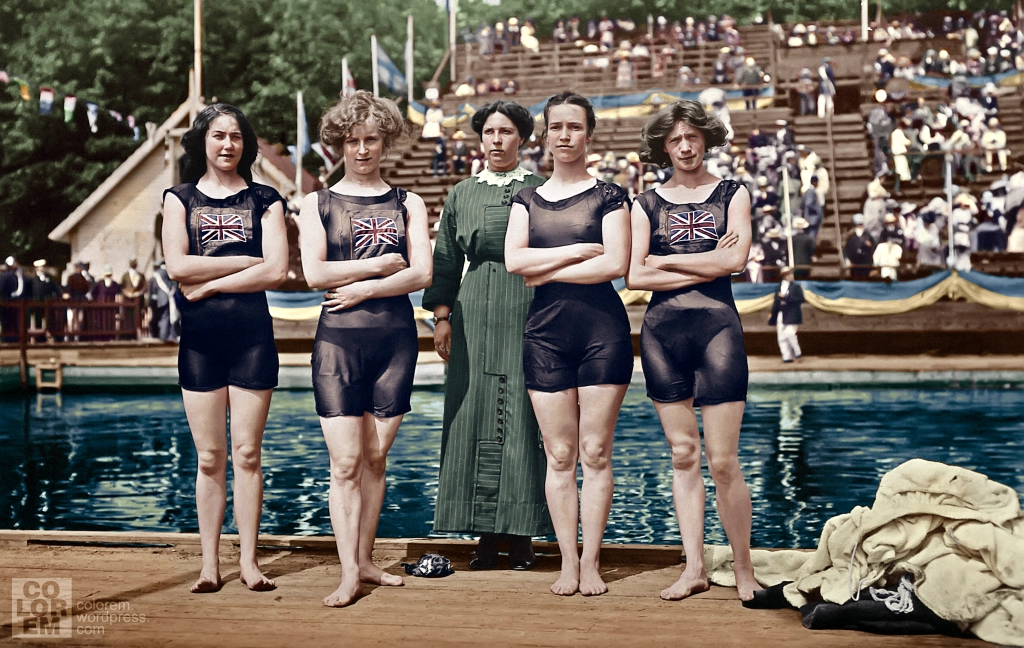
British womens’ 4x100 m freestyle swimming team at the 1912 Stockholm Games. Colorized photo by Manos Athanasiadis
Paris 1924
The first seven Olympics, from 1896 to 1920, were not broadcasted live in any way. It was at the Paris Games in 1924 that the first-ever live radio broadcast of the Olympics was made (cbc.ca).
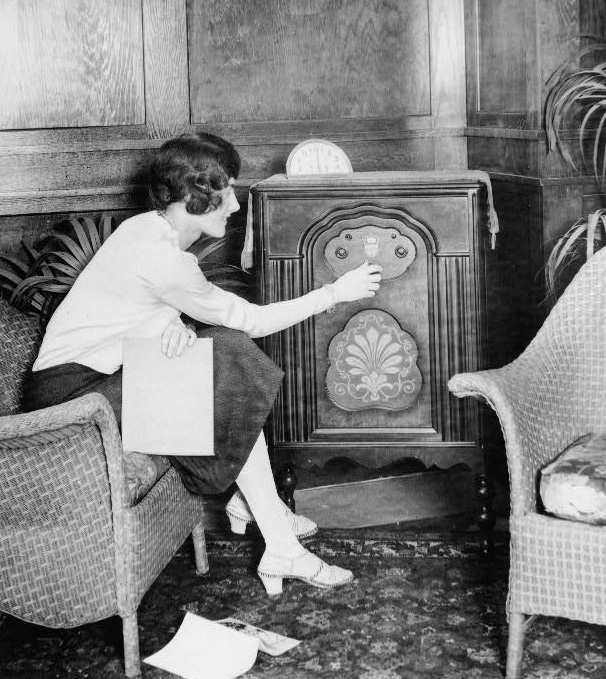
The 1924 Paris Olympic Games were the first to be broadcasted live over the radio. Photo: Sutori.com
Berlin 1936
The Berlin Olympics of 1936 represented another milestone as they were the first Games to be broadcasted live on television. Viewers watched the Games’ opening ceremony on closed-circuit TVs in halls and cinemas situated in and around Berlin. 162,000 people watched over 100 hours of competition (cbc.ca).
It’s important to note that the Nazis had come into power by 1936 and many Jewish athletes boycotted the Berlin Games (cbc.ca).
The 1936 Olympic games were conducted with Adolf Hitler in attendance. Video: British Pathé via YouTube
Later years
The Olympic games continued to gain momentum, becoming increasingly attractive to advertisers. 25 companies advertised at the 1952 Helsinki games in Finland. Four years later, at the 1956 Games in Melbourne, Australia, that number had more than quadrupled, to 112 (cbc.ca).
TV broadcasting rights also began to surge. CBS paid almost $400,000 for the right to broadcast the 1960 Olympics held in Rome. These games were also the first to allow companies to use designations such as “Official Supplier” and “Official Sponsor,” marking the beginning of the kind of Olympic sponsorship we’re familiar with today (cbc.ca).
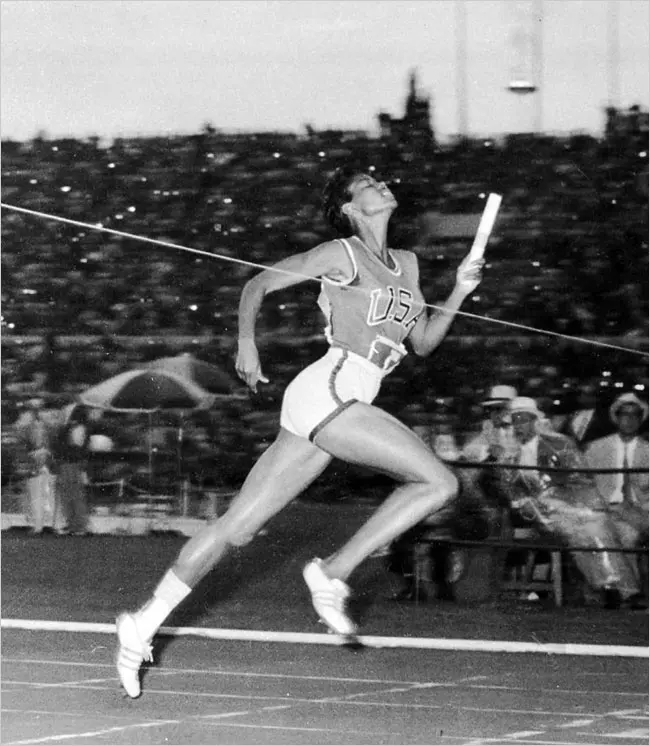
CBS won the right to broadcast the 1960 Olympic Games in Rome, at which Wilma Rudolph (above) set the Olympic record in the 160 meters. Photo: Alamy Stock Photo
The next marketing milestone came with the 1964 Tokyo games. These were the first to be broadcasted internationally, without the need to fly tapes overseas—as had been the case up till then (cbc.ca).
One final marketing fact about the Olympics (as this trivia could go on forever): at the 1964 Games in Tokyo, the International Olympic Committee decided to license a brand of cigarettes for more revenue. These cigarettes were named “Olympias” and they proved to be one of the most lucrative Olympic products ever sold (cbc.ca).
